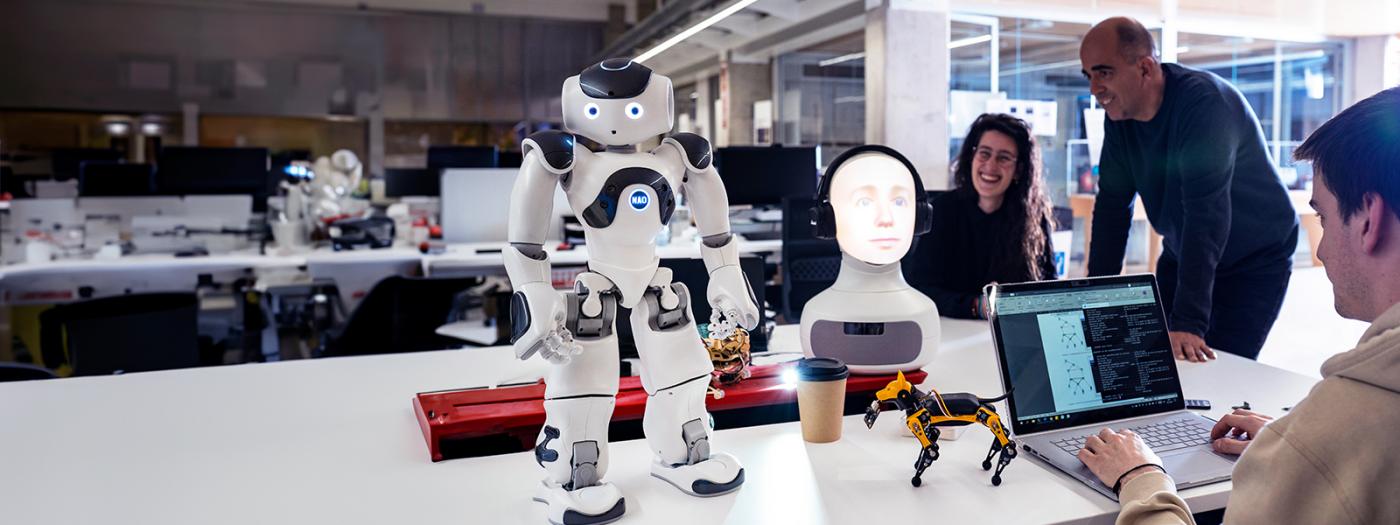The study of a complete instrumentation system starting with the measurement of the magnitude, the signal conditioning, analogical to digital conversion, visualization or data treatment, optimal power supply and finally the printed circuit board (PCB) implementation. This subject is oriented to the acquirement of knowledge of different kinds of sensors and analogical signal treatment. The objective of the practical part is the implementation of a real instrumentation system with sensors.
Titular Professors
Basic knowledge of analogical electronics analysis.
Learning outcomes which should reach students, depending on the curriculum of their degree are:
Knowledge and use of different types of sensors and electronic systems, amplifiers and signal conditioners (GK).
Students who study this subject must acquire the following knowledge and develop the following abilities:
1. Acquire the necessary knowledge for the analysis and understanding of applications with sensors.
2. Capacity and ability to synthesize systems from the measurement of the magnitude to the treatment or visualization of the variable and also to find the optimal powering of the circuit.
3. Ability to process, analyze and find all the needed information to implement an application.
4. Capacity and creativity for the design of applications.
5. To acquire the necessary knowledge to research new measurement or implementation techniques.
6. Capacity of organizing and planning the real implementation of an application.
7. To promote group work.
8. Capacity of applying knowledge to practice.
9. Ability in the use of basic simulation tools and computer assisted design tools.
Part 1. Introduction to a measurement system with sensors
Theme 1. General scheme of an instrumentation system
Theme 2. Dynamic answer and sensor static or measurement system
Theme 3. Sensors with digital exit
Theme 4. Convertors
Theme 5. Sensorial fusion
Parte 2. Basic magnitude measurements
Theme 6. Distance
Theme 7. Temperature
Theme 8. Weight/force/acceleration
Part 3. New technologies and other magnitudes measurement
Theme 9. Meteorology and sensors
Theme 10. Light measurement
Theme 11. Gyroscope and compass. MEMS
Theme 12. GPS system
Practices:
1. Implementation of a complete instrumentation system: transducer, adaptation of signals, visualization, powering of the system and PCB design.
The training activities that are used in the course are:
- Lectures about basic concepts and procedures.
- Study and personal work
- Evaluations
In the practical part the students have the entire course to develop a complete application in an organized and planned way with a work group.
Evaluation activities which are used in the course are:
- Exams
- Continuous assessment controls and class exercises
- Participation in class and in the laboratory
- Reports and personal or group works.
It is mandatory to have a minimum grade of 4 of all compulsory activities.
It is mandatory to have a minimum grade of 5 in the practical part.
- (30%) Exam.
- (10%) Continuous evaluation of the practices and attendance.
- (60%) Practice.
M.A. Perez, J.C. Alvarez, J.C. Field, F.J. Ferrero, G. Cricket. Electronic Instrumentation, Thomson.
eStudy downloads of several materials.
BIBLIOGRAPHY:
Richard W. Henry, Electronic systems and Instrumentation, Bucknell University, John Wiley & Sons
Henry W. Ott, Noise reduction techniques in electronic systems, John Wiley & Sons, USA
R. Morrison, Grounding and shielding techniques in instrumentation, John Wiley and Sons, USA
Daniel H. Sheingold, Transducer interfacing handbook, Analog Devices, USA
Autors diversos, Tansductores y medidores electrónicos, Marcombo, Barcelona
Millman, Microelectrònica, Hispano Europea.
COMPLEMENTARY MATERIAL:
Archives and information uploaded to the virtual campus of the subject.
www.analog.comwww.national.comwww.maxim-ic.com
